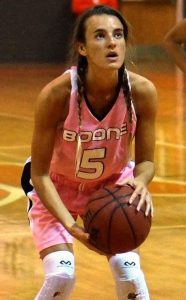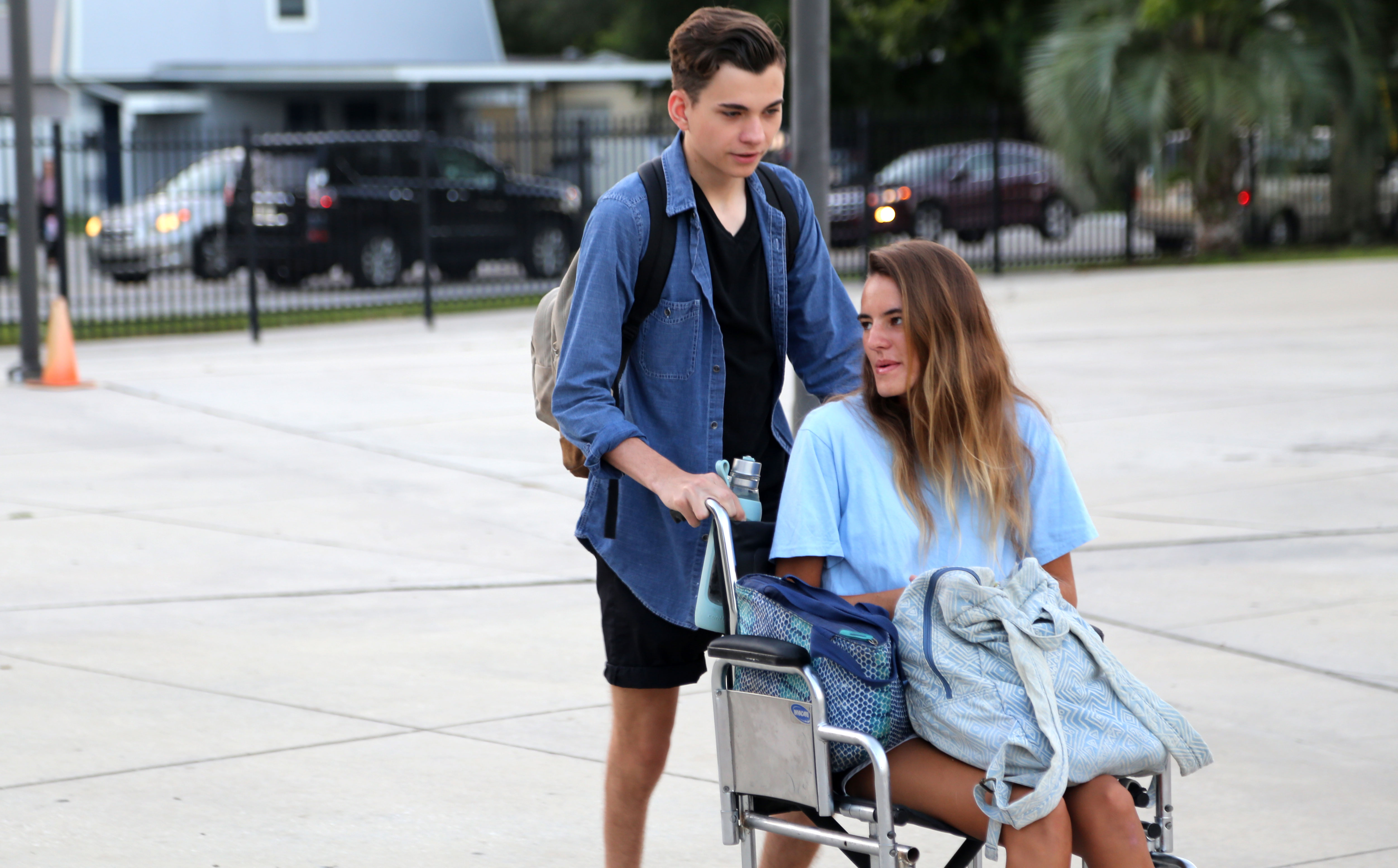Summer beach volleyball distracted senior Allana Crawford from the ensuing, serious warning signs of Guillain-Barre Syndrome. Waking with half of her face paralyzed, instability while walking and a growing tingling sensation brought her disease into full view.

Crawford’s parents, Chip and Karen Crawford, rushed her to the doctor early morning August 3. Professionals redirected her to the emergency room at Arnold Palmer Hospital. After extensive tests including an MRI and spinal tap, Crawford proved positive for Infectious Mononucleosis, (Mono), and GBS. Doctors relayed to Crawford that a protein from her spinal tap confirmed her case of Mono developed into GBS.
“It was scary, of course, this is the first time I’ve had to go to the hospital since I was born. [GBS] is so unique, I couldn’t just have regular mono, I had to have some rare [disease],” A. Crawford said.
Striking one in 100,000 people, (National Institute of Neurological Disorders and Stroke) GBS causes the immune system to attack the peripheral nervous system. In one to three days, paralysis can spread entirely through the body, leading to respiratory failure or death without immediate treatment. With no time to explore other options, the Crawfords placed their faith in the professionals at Arnold Palmer.
“I was a nervous wreck because Allana is incredibly active, with the energy of the Energizer Bunny, so to see her not be able to [have energy] was really scary. We had to trust the doctors and nurses, we didn’t have time to look for other options, we had to act on this,” K. Crawford, said.
Once home from a week’s hospital stay, A. Crawford depended on the assistance of her friends and family for all movements. Everyday tasks like walking and showering required her mother’s help.
“Little things we take for granted, I couldn’t even do. It hit me really hard, it was frustrating, not being able to do everything,” A. Crawford said.
Recovery for GBS includes two five-hour sessions of pumping antibodies from donated blood through an IV. Along with paralysis, Crawford experienced the side effects of headache, extreme fatigue, high blood pressure, decreased taste sensation and lack of involuntary reflexes.
Doctors described vague recovery time frames, estimating from weeks to years before Crawford could resume everyday activities independently.
“Life is such a balance. I have had so much good in my life, and to have one bad thing and be able to fully recover from it, I feel lucky,” A. Crawford said.
A varsity volleyball, basketball and flag football player, Crawford’s sporting career remains on hold until her recovery further progresses. After treatment and returning home, Crawford made headway in a daily physical therapy program to regain control, feeling and strength.
“We feel very lucky that Allana’s doing so well, she’s advanced so much. She just wants to finish out the year and help the team succeed; I’m hoping she can participate,” K. Crawford said.
A. Crawford aims to regain her strength and stamina by basketball season this winter. She remains high-spirited, positive and eager to resume her athleticism and independent life.
“I’m just looking forward to being able to run, anywhere. To be able to jump and run up the stairs or into the ocean,” A. Crawford said.
